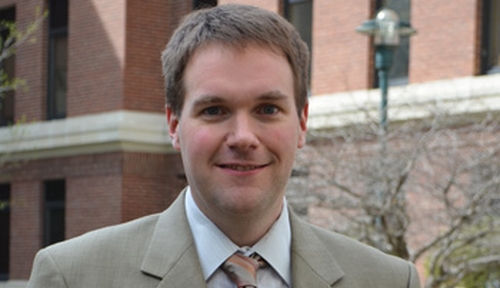Geoffrey Talmon, M.D., associate professor, pathology/microbiology, has been named the inaugural James Linder, M.D. Residency Director Distinguished Chair. The chair was created by Dr. Linder in recognition of the work of the residency director to train the next generation of pathologists.
Dr. Linder is senior associate to the president for innovation and economic competitiveness for the University of Nebraska and president of the University Technology Development Corp. He continues to also serve as professor of pathology/microbiology for UNMC and executive director of UNeMed Corp., UNMC’s technology transfer company.
Dr. Talmon provides his insights below on what the new position means to him, the program’s greatest strengths and the goals he hopes to accomplish.
What does it mean to be the inaugural holder of the Linder Chair?
I am humbled and honored, particularly to hold the position that bears the name of one of the most well-respected and experienced pathologists in our department. James Linder, M.D., has long been an avid supporter of the residency based on his time as a past program director, and I am immensely grateful for his enormous generosity. These are definitely big shoes to fill.
What are the pathology residency program's greatest strengths?
I am most proud of the faculty’s dedication to teaching, combined with the overall strength and quality of our residents. The close-knit environment of our department affords residents a wealth of opportunities to explore their interests and become involved in projects. Also, the departmental administration is very supportive of the program; our residents are viewed as “colleagues in training,” not just a labor force.
How will this chair help you expand focus or achieve current goals?
So many pathology residencies are focused solely on their residents passing boards and securing a fellowship. While these are important, I do not believe they are an end unto themselves and only serve as a surrogate marker for the effectiveness of our training.
Our residency’s prime goal should be to give our graduates the skills and knowledge base to hit the ground running when they begin their actual practice, and I intend to use the funds in line with this mission.
Dr. Linder’s support through the chair will expand the opportunities in teaching lab management, billing and communication, and provide additional exposure to all of the soft skills a practicing pathologist learns during the first “trial-by-fire” weeks of their practice.
It gives us the means to: develop and/or purchase supplemental educational materials — from teleconferences to simulation activities; allow residents to attend national meetings; and institute new activities where trainees can interact with past residents and other pathologists formally and informally, gaining a perspective on the “real” life of practicing pathologists.
